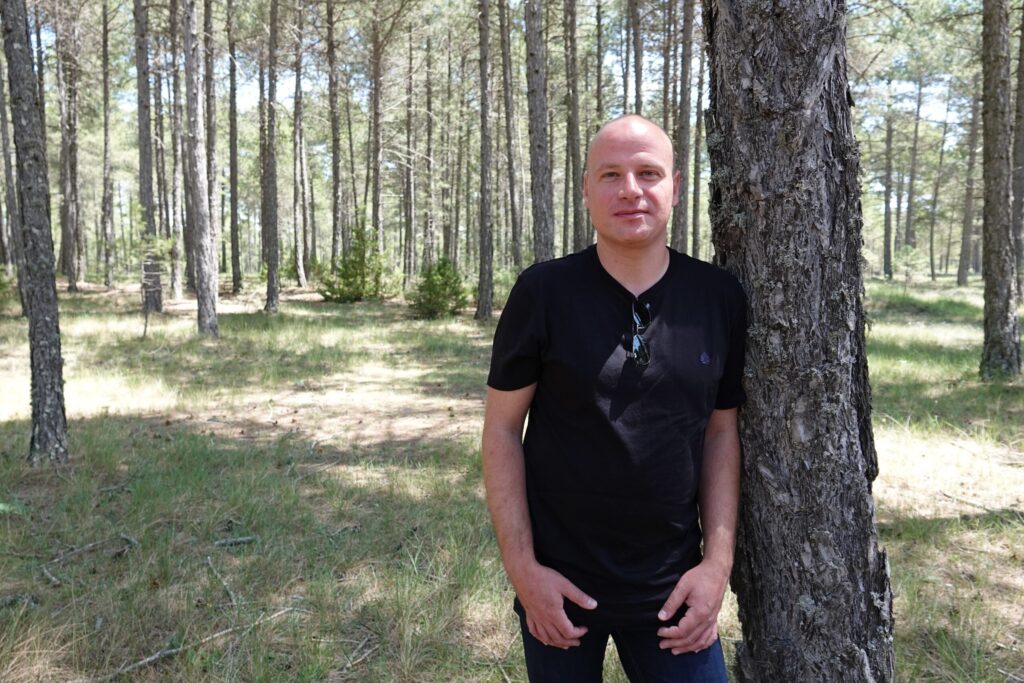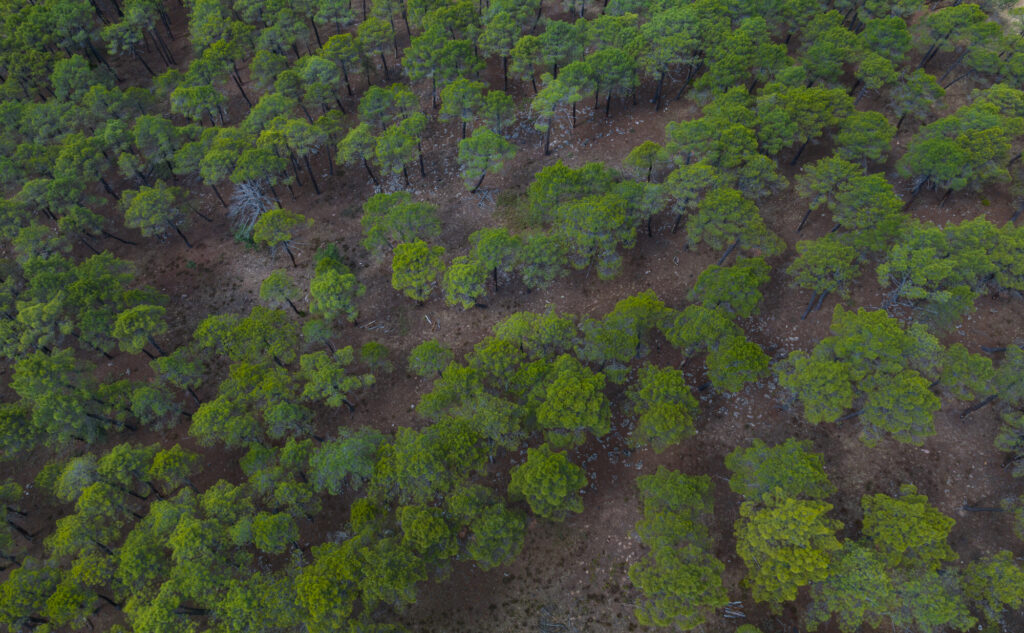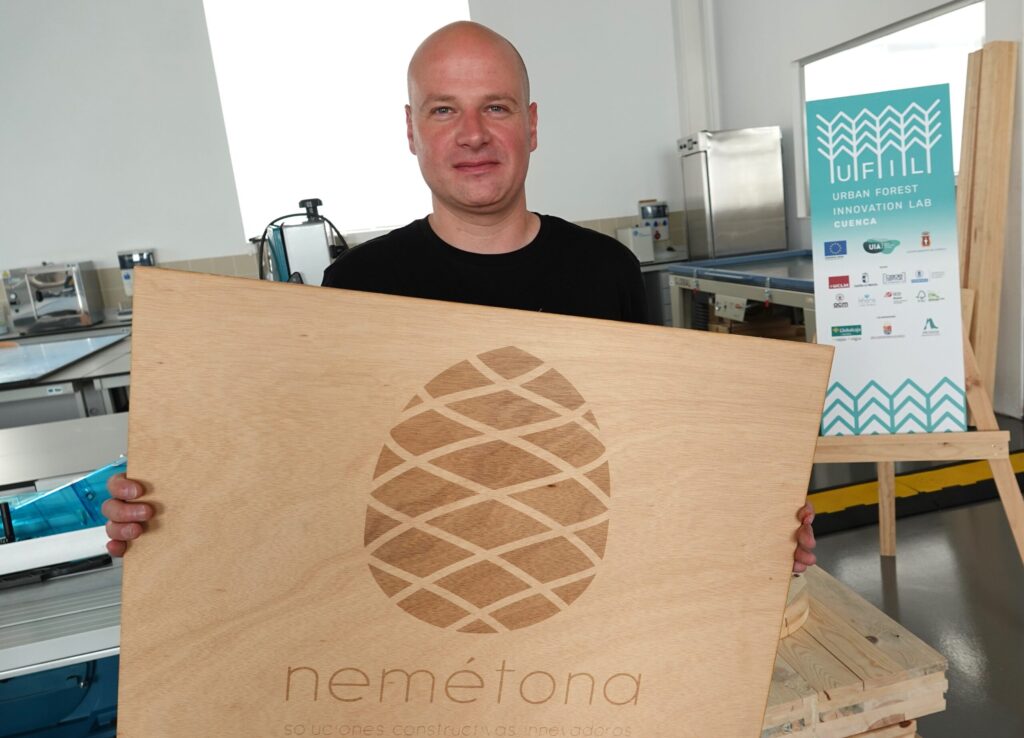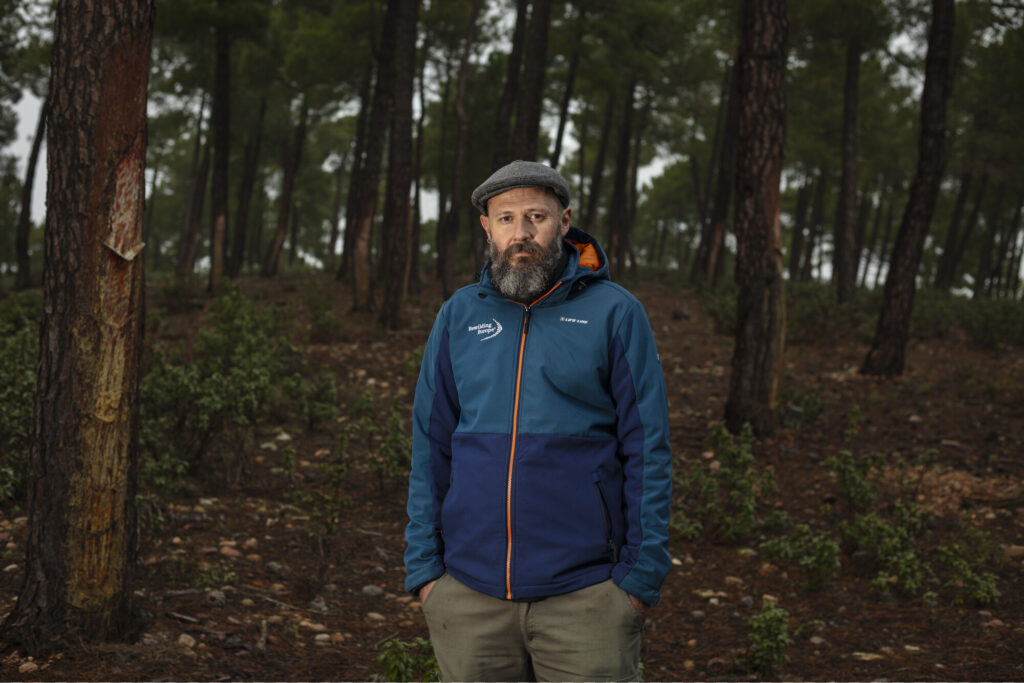A loan from Rewilding Europe Capital will help Spanish start-up Nemétona to manufacture sustainable wooden construction panels, using timber sourced from forests in the Iberian Highlands. The company’s business model will benefit nature, climate, and local communities.

Advancing innovative green business
Rewilding Europe Capital is Rewilding Europe’s enterprise loan facility. It provides commercial loans and repayable grants, complemented by business development advice, to companies located in and around Rewilding Europe’s portfolio of rewilding landscapes. The goal is to amplify rewilding impact, support the development of nature-based economies, and innovate new ways of doing new business that are good for nature and good for people too.
Rewilding Europe Capital has just loaned 100,000 euros to Nemétona, a Spanish start-up based in the city of Cuenca, in the Iberian Highlands rewilding landscape. Founded in 2021, Nemétona is on track to become one of the first Spanish companies to manufacture cross-laminated timber (CLT) – a type of engineered wood product that represents a sustainable alternative to concrete and steel – using local black pine, which is the most abundant native conifer in the forests of the Serranía de Cuenca region. The money will help support the construction of a new CLT manufacturing plant.

Wide-ranging benefits
Nemétona’s business model will generate benefits for nature, climate, and people, which is why the company is receiving financial support from Rewilding Europe Capital.
Nemétona is aiming to promote sustainable forest management in the region by supporting the sale of volumes of timber in a controlled way. Sourcing timber from black pine plantations, which cover much of the Serranía de Cuenca region, will enable them to be thinned out – boosting biodiversity, reducing populations of pests, and lowering the risk of catastrophic wildfire. As climate change leads to more extreme weather, such wildfires are becoming an increasingly serious issue in southern Europe.

Positive carbon impact
CLT’s base material – timber from pine, spruce, or other coniferous tree species – is a renewable resource that is relatively fast growing, unlike the conventional components of steel (iron ore) or concrete (sand). The process of converting wood into CLT also generates far fewer carbon emissions than the manufacture of traditional construction materials. On top of this, timber is a much better store of carbon than concrete, steel, or masonry. Once CLT panels have reached the end of their usable life, they can be recycled or reused for other purposes.
Demand for CLT in Spain is increasing, and currently exceeds supply at a national level. By manufacturing CLT with timber sourced locally, rather than from overseas, Nemétona will be able to reduce the carbon footprint of its final products further and enhance their profitability. At the moment most of the timber being harvested from black pine plantations in the Serranía de Cuenca region is used for pallets, woodchips, pellets, or pulp – all relatively unsophisticated products with little added value.
Revitalising local communities
The vast and sparsely populated Iberian Highlands became Rewilding Europe’s tenth rewilding landscape in 2022. Long-term rural depopulation presents local communities with a range of socio-economic challenges. Through the recovery of nature, which in turn is attracting more visitors and enabling the development of thriving nature-based economies, rewilding at scale is encouraging and enabling people to return to and revitalise the area.
Nemétona’s innovative perspective is reflected not only in its commercial portfolio, but also in its role in the landscape. The company is currently exploring options for establishing its first production plant in the Serranía de Cuenca region. Once the plant is built, Nemétona plans to employ up to 25 people in the first two years of operation.
“Beyond producing innovative and sustainable building materials, our overall mission is to addresses both the environmental and social challenges facing the Iberian Highlands,” explains Nemétona CEO Álvaro Tarancón. “We want to work with small landowners, local sawmills, and partners who can grow with us.”

A pioneering loan
The loan to Nemétona represents the first time that Rewilding Europe Capital has supported a timber production company.
“This is the perfect example of how Rewilding Europe Capital takes the specific needs of businesses in and around every landscape into account,” says Rewilding Spain’s Enterprise Manager Basilio Rodríguez. “As long as businesses are aligned with the principles of rewilding, there is a flexibility and desire to help them develop.
“In this particular case, it makes perfect sense to support Nemétona. Using timber from local black pine plantations for construction reduces carbon emissions and helps to lock up carbon, boosts the economy, and promotes nature recovery. It’s a win-win-win.”

Helping nature-based businesses flourish
The Rewilding Spain team are responsible for identifying businesses that could benefit from Rewilding Europe Capital support within the Iberian Highlands rewilding landscape. They also help to manage applications and the loan access process. Enterprise officers such as Basilio Rodríguez are on hand in the majority of Rewilding Europe’s rewilding landscapes to supporting local nature-based businesses.
To date, Rewilding Spain has facilitated the disbursal of loans worth 213,000 euros through Rewilding Europe Capital. These have benefited three businesses in the landscape: La Maleza Wildlife Park (Sierra de Albarracín in Teruel Province), Del Bosque a tu Casa (Alto Tajo region in Guadalajara Province), and Nemétona (Cuenca Province).
If you are a European entrepreneur with a desire to enhance wild nature, Rewilding Europe Capital may be able to help you realise your ambition. For more information, please contact Rewilding Europe’s Conservation Finance Expert, Daniel Veríssimo.
